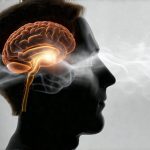We often think of motivation to exercise as purely a mental game—a matter of willpower, discipline, and setting achievable goals. And while those factors certainly play a role, there’s a growing body of research revealing a powerful, often overlooked influence: the health of our gut. The intricate ecosystem within our digestive system isn’t just about processing food; it profoundly impacts our energy levels, mood, cognitive function, and crucially, our drive to move. Understanding this connection can unlock new strategies for building sustainable habits and achieving lasting fitness success, moving beyond simply ‘pushing’ ourselves to incorporating a holistic approach that nurtures both mind and body from the inside out.
The gut-brain axis – a bidirectional communication network linking the gastrointestinal tract with the brain – is central to this relationship. This isn’t just one-way street; your brain influences your gut, and conversely, your gut profoundly affects your brain. The trillions of microorganisms residing in our intestines (the gut microbiome) constantly communicate with our nervous system, influencing neurotransmitter production, hormone regulation, and even immune function. A disrupted or imbalanced microbiome can lead to a cascade of effects that sap motivation, increase fatigue, and make physical activity feel like an insurmountable challenge rather than a rewarding experience. This article will delve into the mechanisms behind this connection and explore practical ways to cultivate gut health for increased energy and a stronger desire to stay active.
The Gut-Brain Axis & Exercise Motivation
The link between the gut and brain isn’t some new age concept; it’s firmly rooted in scientific understanding. Neurotransmitters, chemical messengers crucial for mood regulation and motivation, are heavily influenced by gut health. For example, approximately 90% of serotonin – often dubbed the “happy hormone” – is produced in the gut! Similarly, dopamine, vital for reward-motivated behavior (and essential for enjoying exercise!), has links to microbial activity. An unhealthy gut can disrupt this delicate balance, leading to:
- Reduced neurotransmitter production, contributing to feelings of apathy or low mood
- Increased inflammation, which can impact brain function and energy levels
- Dysregulation of the hypothalamic-pituitary-adrenal (HPA) axis – our body’s stress response system – making us more susceptible to fatigue and burnout.
This means that even if you want to exercise, a compromised gut microbiome might leave you feeling too tired, unmotivated, or simply unable to experience the joy associated with physical activity. It’s not about lacking willpower; it’s about biochemical imbalances hindering your ability to feel driven and energized. Consider how much easier it is to stick to a fitness routine when you genuinely feel good – both physically and mentally. That feeling isn’t solely generated by mental fortitude; it’s deeply intertwined with the health of your gut.
Furthermore, the gut microbiome impacts energy metabolism. The bacteria in our intestines play a role in how efficiently we extract energy from food and regulate glucose levels. An imbalanced microbiome can contribute to metabolic dysfunction, leading to chronic fatigue and reduced stamina – making exercise feel significantly harder. Essentially, a healthy gut supports optimal energy production, providing the fuel you need to power through workouts and enjoy physical activity. It’s important to understand gut acidity as well!
How Gut Dysbiosis Impacts Energy Levels
Gut dysbiosis refers to an imbalance in the composition of the gut microbiome—too many harmful bacteria and not enough beneficial ones. This can occur due to various factors including poor diet, stress, antibiotic use, and chronic illness. When dysbiosis sets in, several things happen that directly impact energy levels:
- Increased Inflammation: Dysbiotic guts often experience heightened intestinal permeability – commonly known as “leaky gut.” This allows inflammatory molecules to enter the bloodstream, triggering systemic inflammation. Chronic inflammation saps energy reserves and contributes to fatigue.
- Impaired Nutrient Absorption: A healthy microbiome aids in nutrient absorption. When it’s compromised, your body may struggle to absorb essential vitamins and minerals needed for energy production (like B vitamins, iron, and magnesium).
- Mitochondrial Dysfunction: Emerging research suggests a strong link between gut health and mitochondrial function – the powerhouses of our cells. Dysbiosis can negatively affect mitochondrial efficiency, further reducing energy levels and contributing to fatigue.
This isn’t just about feeling tired; it’s about lacking the vitality needed to incorporate regular exercise into your life. Imagine trying to motivate yourself for a run when you already feel drained before you even start – that’s the reality many people experience with gut dysbiosis. It creates a vicious cycle where low energy leads to less activity, which further exacerbates gut health issues and perpetuates fatigue. You may want to build a schedule with your doctor for testing.
The Role of Short-Chain Fatty Acids (SCFAs)
Short-chain fatty acids (SCFAs), like butyrate, propionate, and acetate, are produced when beneficial bacteria ferment dietary fiber in the colon. These SCFAs aren’t just waste products; they’re incredibly important for overall health and specifically impact exercise motivation in several ways:
- Energy Source: SCFAs provide an energy source for cells in the gut lining, promoting a healthy intestinal barrier and reducing inflammation.
- Brain Health: Butyrate, in particular, has neuroprotective effects and can cross the blood-brain barrier, improving cognitive function and mood regulation—directly impacting motivation.
- Muscle Function: SCFAs may enhance muscle glucose uptake and improve exercise performance.
Increasing SCFA production requires a diet rich in fiber. This means prioritizing whole grains, fruits, vegetables, legumes, and seeds. A fiber-rich diet not only nourishes your gut bacteria but also provides the raw materials for them to create these beneficial compounds that fuel both physical and mental energy. Understanding nutrient absorption is key here!
Dietary Strategies for Gut Health & Motivation
Optimizing your gut health isn’t about restrictive diets or complicated protocols. It’s about making informed food choices that support a thriving microbiome. Here are some practical steps you can take:
- Increase Fiber Intake: Aim for at least 25-30 grams of fiber per day from diverse sources.
- Incorporate Fermented Foods: Regularly consume foods like yogurt (with live cultures), kefir, sauerkraut, kimchi, and kombucha – these are rich in probiotics (live beneficial bacteria).
- Limit Processed Foods, Sugar & Artificial Sweeteners: These can disrupt the gut microbiome and promote inflammation.
- Stay Hydrated: Water is essential for digestion and supports a healthy gut environment.
- Consider Prebiotic-Rich Foods: Prebiotics are foods that feed beneficial bacteria in your gut. Examples include garlic, onions, asparagus, bananas, and oats.
It’s important to note that dietary changes should be gradual to avoid digestive upset. Listen to your body and adjust accordingly. Building a healthy gut is a long-term investment that yields significant rewards – not just for exercise motivation but for overall health and well-being.
Beyond Diet: Lifestyle Factors & Gut Health
While diet plays a crucial role, it’s only one piece of the puzzle. Lifestyle factors significantly impact the gut microbiome and therefore influence your ability to stay active. Stress management is paramount. Chronic stress elevates cortisol levels, which can negatively affect gut bacteria composition and increase intestinal permeability – exacerbating dysbiosis. Techniques like mindfulness meditation, yoga, deep breathing exercises, and spending time in nature can help mitigate stress and support a healthier gut.
Sleep quality is another critical factor. Lack of sleep disrupts the circadian rhythm, impacting gut microbial diversity and function. Aim for 7-9 hours of quality sleep each night to allow your body (and gut) to repair and restore itself. Regular physical activity, ironically, also supports gut health! Exercise promotes gut motility (movement), increases microbial diversity, and reduces inflammation. It’s a positive feedback loop – a healthy gut makes exercise easier, and exercise improves gut health. However, overtraining can have the opposite effect, so finding a balance is key.
The connection between our gut and motivation to move isn’t simply about willpower; it’s a complex interplay of biochemical processes, neurological pathways, and lifestyle factors. By understanding this relationship and taking proactive steps to nurture our gut health, we can unlock lasting energy, improve mood, and cultivate a genuine desire to embrace an active lifestyle—one that feels sustainable and rewarding rather than forced and overwhelming. It’s about working with your body, not against it, to achieve optimal well-being. You might also want to consider how to choose cookware that supports digestion. And if nausea disrupts your day, remember staying active is still possible. Finally, don’t forget how to stay social.


















